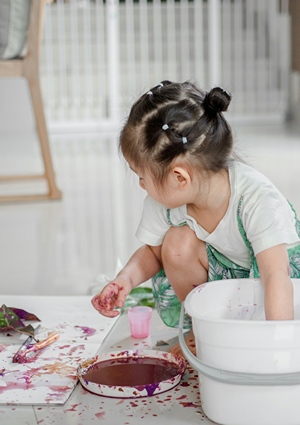How Parents Can Support Kids in Their Hobbies
Supporting children in their hobbies is one of the most enriching aspects of parenting. It not only helps in nurturing their interests and talents but also strengthens the bond between parents and children. Hobbies provide children with opportunities to explore their passions, develop new skills, and build confidence.
As parents, encouraging and participating in these activities can significantly impact a child’s growth and happiness. So, we decided to explore various ways parents can support their kids in their hobbies, ensuring that these pursuits become a positive and integral part of their lives.
The Ultimate Remote Control Adventure
FTX RC is an exciting world of remote-controlled (RC) cars, trucks, and buggies that offers endless fun for kids who love racing and adventure. These RC vehicles come in various styles and sizes, perfect for off-road adventures or thrilling speed races. As you dive into the FTX RC hobby, you’ll discover a community of enthusiasts who share tips and tricks, including how to find FTX spares for repairs and upgrades. These spare parts help keep your RC vehicles in top shape, ensuring they perform their best during every race. Exploring FTX RC can be an exciting way to learn about mechanics, improve driving skills, and enjoy endless hours of high-speed fun.
Understanding Your Child’s Interests
The first step in supporting your child’s hobbies is to understand their interests. Pay attention to the activities that excite them and the things they talk about with enthusiasm. Have open conversations to learn more about what they enjoy and why. This understanding helps in providing the right kind of support and encouragement. It’s important to remember that a child’s interests may change over time, so being flexible and open-minded is crucial. By showing genuine interest in their hobbies, parents can foster a supportive environment where children feel valued and understood.
Providing the Necessary Resources
Once you have a clear understanding of your child’s interests, the next step is to provide the necessary resources. This might include materials, equipment, or even just a dedicated space for them to pursue their hobbies. For instance, if your child enjoys painting, providing quality art supplies and a comfortable place to work can make a big difference. If they are interested in sports, ensuring they have the right gear and access to practice facilities is essential. By investing in the necessary resources, parents show their commitment to their child’s interests, which can be incredibly motivating for the child.
Encouraging Regular Participation
Consistency is key when it comes to developing skills and maintaining interest in a hobby. Encourage your child to participate regularly in their chosen activities. This might involve setting aside specific times each week for them to engage in their hobby or helping them join clubs or classes where they can practice regularly. Regular participation not only helps in skill development but also keeps the excitement alive. It’s important to strike a balance, ensuring that the hobby remains enjoyable and not a source of stress. Encouraging without pressuring allows children to explore their interests at their own pace.

Being Actively Involved
Active involvement in your child’s hobbies can be incredibly rewarding for both parents and children. Attend their games, performances, or exhibitions whenever possible. Offer to help with practice sessions or projects, showing that you value and support their efforts. Being actively involved demonstrates your commitment and interest in their pursuits. It also provides opportunities for quality bonding time and creates positive memories. However, it’s important to strike a balance and allow children to have some independence in their hobbies. Being supportive without being intrusive helps in building their confidence and sense of ownership over their activities.
Encouraging Social Interaction
Hobbies can be a great way for children to make new friends and build social skills. Encourage your child to join clubs, teams, or groups related to their interests. This provides them with opportunities to interact with peers who share similar passions, enhancing their social experiences. Social interaction through hobbies can also teach important life skills such as teamwork, communication, and empathy. By supporting their involvement in social activities, parents help children develop a well-rounded personality and create a sense of belonging and community.
Celebrating Achievements
Celebrating your child’s achievements, no matter how small, can have a profound impact on their motivation and self-esteem. Acknowledge their efforts and successes with praise and encouragement. Celebrate milestones, whether it’s finishing a project, mastering a new skill, or winning a competition. These celebrations don’t have to be grand; sometimes, a simple compliment or a special treat can make a big difference. Celebrating achievements helps children feel valued and appreciated, reinforcing their commitment to their hobbies and boosting their confidence.
Providing Emotional Support
Hobbies can sometimes come with challenges and frustrations. Providing emotional support during these times is crucial. Be there to listen, offer encouragement, and help them navigate any difficulties they encounter. Teach them that setbacks are a part of the learning process, and that persistence and resilience are key to success. By providing a supportive and understanding environment, parents can help children develop a positive mindset and the ability to overcome obstacles. Emotional support from parents helps in building a strong foundation of trust and security, which is essential for a child’s overall development.
In conclusion, supporting children in their hobbies is a vital aspect of parenting that can significantly impact their development and happiness. By understanding their interests, providing necessary resources, encouraging regular participation, being actively involved, fostering social interaction, celebrating achievements, providing emotional support, balancing responsibilities, and encouraging exploration, parents can create a nurturing environment where children thrive. These efforts not only help in developing their skills and talents but also strengthen the parent-child bond, creating lasting memories and a foundation for a fulfilling and well-rounded life.




